Personal life
An especially memorable narrative of Galib is released in India
[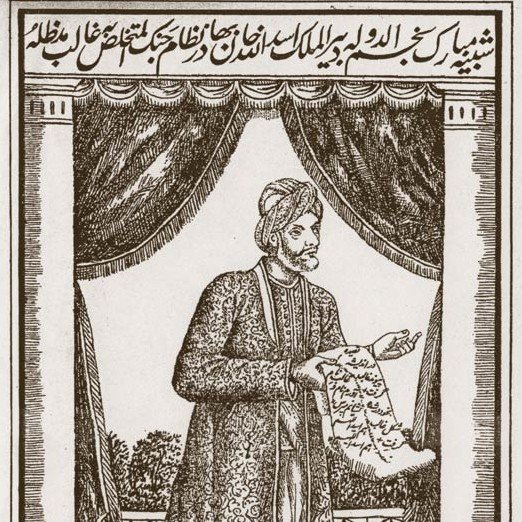
Mirza Ghalib was born in a family of Kalal Mahal, Agra, named after Iq Turk. After the collapse of the Seljuk kings, they came to Samarkand (today's Uzbekistan). His paternal grandfather, Mirza Kawakan Beg Khan, was a Salzu Turk who came to India during the reign of Ahmad Shah from Samarkand (1748-54). [Citation needed] He worked in Lahore, Delhi and Jaipur, settled him in sub-district Pahasu (Bulmansar, UP) and eventually settled in Agra, UP, India. He had four sons and three daughters. Mirza Abdullah Beg Khan and Mirza Nasrullah Beg Khan had two sons.
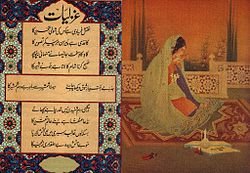
Mirza Abdullah Beg Khan (Ghalib's father) married Ijatat-Ut-Nisa Begum, an ethnic Kashmiri [6] and then lives in his father-in-law's house. He was first appointed Nawab of Lakhnau and then Nizam of Hyderabad, Deccan. He died in a battle in 1803 in Alwar and he was buried in the Rajgarh (Alvar, Rajasthan). Then Galib was 5 years old. He was first headed by his church Mirza Nasrullah Beg Khan.
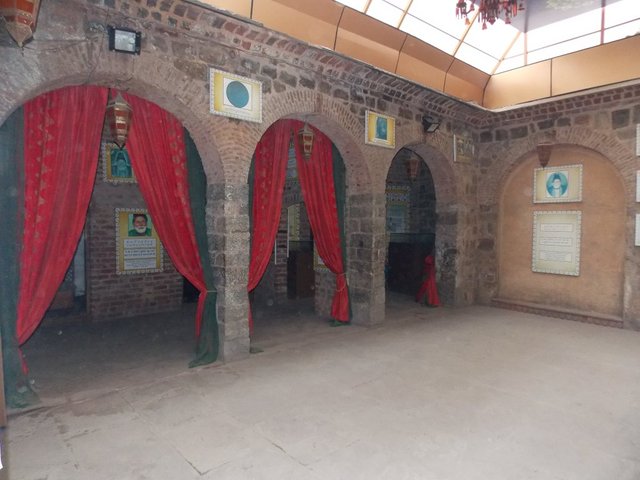
Ghalib got married at the age of thirteen, and he married Umrao Begum, daughter of Nawab Elahi Bakshi (brother of Nawab of Pirojpur Zirka). [Citation needed] He soon moved to Delhi with his younger brother, Mirza Yusuf Khan, who died in Delhi at a young age of schizophrenia and then in the chaos of 1857.
He married a high-class Muslim tradition at the age of 13, but his seven children did not live from childhood. After his marriage, he lives in Delhi. In one of his letters, he described his own life as the second imprisonment after the initial confinement. The idea is that life is a continual painful struggle which can only end when life itself, its poem is a repeated theme. One of its brokers puts it briefly:
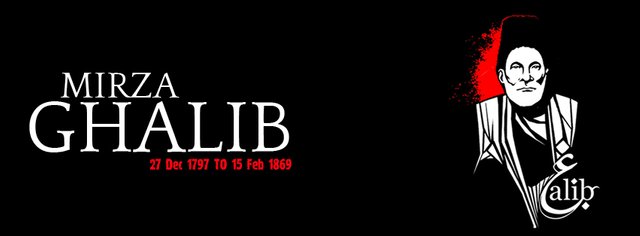
Mughal title
In 1850, Emperor Bahadur Shah Zafar gave the second title "Dabir-ul-Mulk" to Mirza Ghalib. The emperor added an additional headline of "Nazam-ud-Daulah". The symbol of Mirza Ghalib's entry in exchange for these titles symbolizes the spirit of Delhi. He also received the title 'Mirza Nos' from Emperor, thus, Mirza was mentioned as his first name. He was an important courtesy of the Emperor's royal court. Emperor himself was a poet, in 1854, Mirza Ghalib was appointed as his poet teacher. He was appointed the teacher of Prince Fakhruddin Mirza (D.10 July 1856), son of Bahadur Shah II land. He was appointed by the emperor as the royal historian of the Mughal court
Being a member of the fall of the Mughal dominion and old aristocrats, he never worked for earning, even the royal patronage of the Mughal emperors, credit or his friends lived with generosity. His posthumous came to him. He himself commented on his life that he would be recognized by the next generation. Despite the collapse of the Mughal Empire and the rise of the British Raj, despite many attempts, Galib did not completely restore.
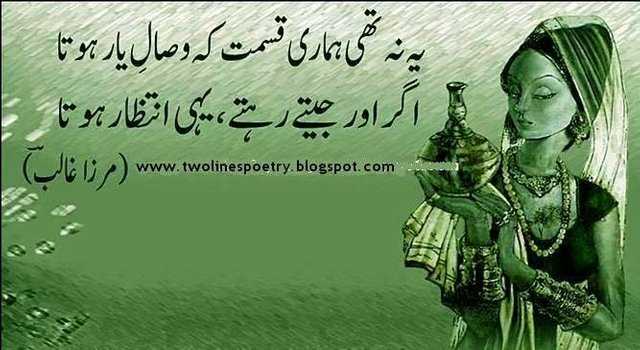
Literary career
Ghalib started writing poems at the age of 11. His first language was Urdu, but Persian and Turkish also spoke at home. He received an education in Persian and Arabic at a young age. When was Galib at her young age [repeatedly]? A new converted Muslim traveler from Iran (Abdus Samad, originally named Hormuz, Zoroastrian) came to Agra [[who?] He lived in Ghalib's house for two years and taught him Persian, Arabic, philosophy, and logic.
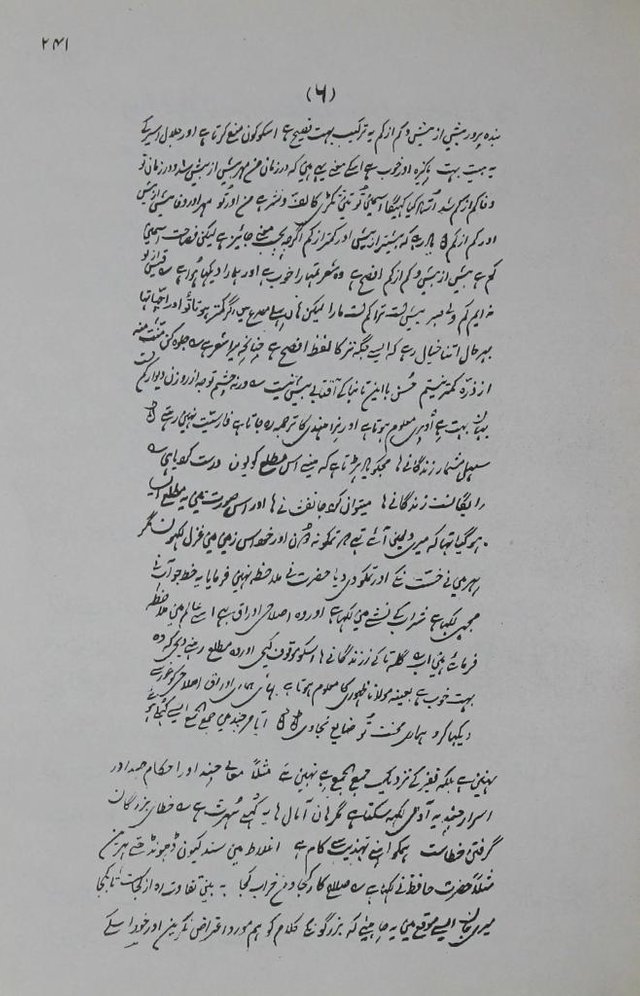
Galib Poetry Snake
Although Ghalib himself was a proponent of poetic achievement in Persian, he is today famous for Urdu Gazal. Numerous explanations of Ghalib's ghazal compilation have been written by Urdu scholars. During the last Nizam regime of Hyderabad, Ali Haider was written by first such explanation or Sharha by Nazm Tabatabai of Hyderabad. Before the Ghalib, Ghazal was mainly an expression of sad love; But Galib philosophy, revealing the way of life and the mystery, and wrote ghazals on many topics, deeply expanded the expansion of the ghazals [original research?]
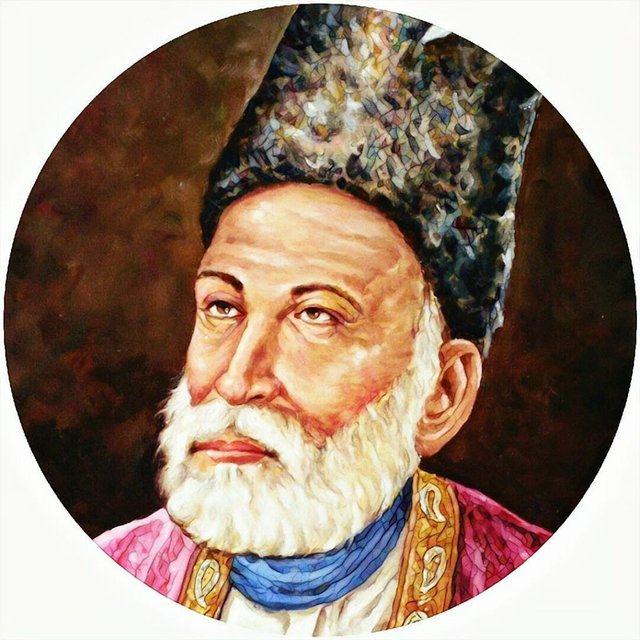
Along with the classical rules of Galibis, in most of the verses of Galibat, the identity and gender of the parents are uncertain. Critic/ poet/writer Shamsur Rahman Farooqi explains [13] that the existence of the "concept" of a lover or beloved rather than the true lover/liberator frees the poet-hero-boyfriend from the reality. In the second half of the nineteenth century, the poem of love in Urdu is mostly in the western sense of the word "poetry of love" and "poetry".
The first complete English translation of Ghalib's ghazal is Sonnet's love of Galib's love written by Sarfaraz K. Niazi [14] and silver and coo in Pakistan and India. And published by Firozson. It contains complete Roman transliteration, interpretation, and a comprehensive dictionary.
Galib's letter is a page (in his own hand)
Mirza Ghalib was a gifted letter writer. [16] Not only Urdu poetry but prose has been owed to Mirza Ghalib. His letter is based on the simple and popular Urdu foundation. Writing letters to Urdu before Galib was very ornamented. He created "talk" using his character word and sentence so that he interacted with the reader. According to him, how many visas (Hundred minutes from the pen, speak with the pen's tongue and enjoy the joy of the meeting when you are being separated) by Saw Qas Sa-Japan-e-Kalam, Baitin Kaaya Karu. His letter was very informal; Sometimes he will simply write the name of the person and begin the letter. He was very ridiculous and wrote very interesting letters. In one of his letters, he wrote, "I do not want to come, whoever comes, is happy with the bird's feet." (I want to write such a line that anyone who reads them will benefit them) Some scholars say that Urdu literature of Galibis is only based on his character There will be space. Ralph Russell of The Oxford Galibus has been translated into English
Ghalib was a historian of an intense period. One after another, the Galib market witnessed - especially the market, the market in Urdu market, the market of Kharam disappeared, and the entire Mohal (local area) and Kataras (lanes) disappeared. Her friends have been tearing the hairs (houses) on the ground. Galib writes that Delhi has become a desert. The water was low. Delhi was "a military camp" This was the end of the feudal elite which was involved in the ghalib. He wrote:
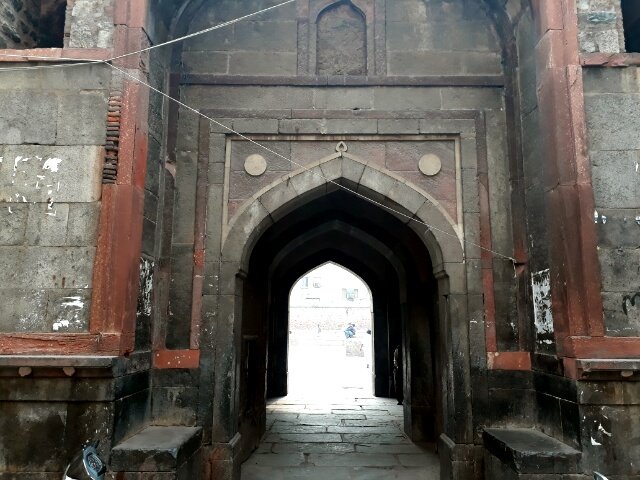
"An ocean of blood presses around me
Alas! This was all!
Will be shown in the future
What's left for me?
Congratulations @rezakhan! You have received a personal award!
Click on the badge to view your Board of Honor.
Do not miss the last post from @steemitboard:
Downvoting a post can decrease pending rewards and make it less visible. Common reasons:
Submit
Congratulations @rezakhan! You received a personal award!
You can view your badges on your Steem Board and compare to others on the Steem Ranking
Do not miss the last post from @steemitboard:
Vote for @Steemitboard as a witness to get one more award and increased upvotes!
Downvoting a post can decrease pending rewards and make it less visible. Common reasons:
Submit